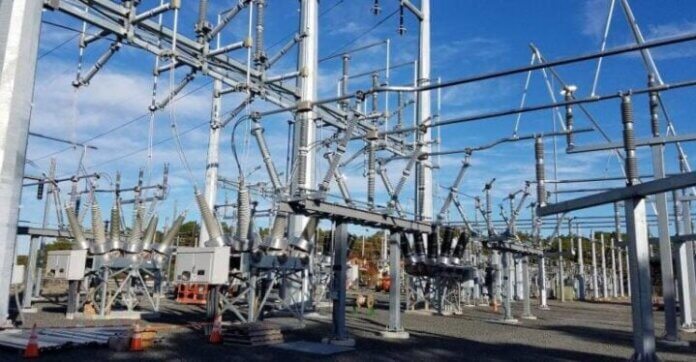The Nigerian Electricity Regulatory Commission has issued 95 licences, permits and registration certificates for the generation of 989.42 megawatts of electricity in 2023 as part of measures to shore up Nigeria’s power production.
Energy industry figures seen in Abuja at the weekend showed that the power generation licences, permits and certificates were issued to investors by the Nigerian Electricity Regulatory Commission, an agency of the Federal Government.
Nigeria generates between 4,000 and 5,000MW of electricity, with a target of hitting 6,000MW by December this year.
On Friday, for instance, the country’s power generation on the national grid as of 6 am was 4,096.02MW.
It was observed that in the first quarter of 2023, NERC issued 12 licences and permits, and approved four mini-grids registrations for the production of 723MW of electricity.
It issued 13 permits in the second quarter for the generation of 20.06MW of power.
In the third quarter, the regulator issued 18 licences and permits for the generation of 43.18MW of electricity, while a total of 48 licences, permits and registration certificates were issued by the commission for the generation of 203.18MW of electricity in the fourth quarter of 2023.
Providing a breakdown of what it issued during the review period, NERC said, “The commission approved the issuance of two new generation licences with a combined capacity of 723MW in 2023/Q1.
“Five captive power generation permits were issued alongside five permits and four registrations for mini-grids.”
In the second quarter, the regulator stated that it also “issued three new captive power generation permits with an aggregate capacity of 20.06MW and 10 mini-grid permits”.
The commission noted that in the third quarter of last year “five new (8.81MW) and three amendments (10.50MW) of off-grid generation licences” were issued.
It further stated that “one new (5MW) and one renewal (10MW) licence for embedded generation,” as well as “three captive generation permits (7.07MW) and five mini-grid permits (1.8MW)” were issued in Q3, 2023.
For licensing and permits issued to increase power generation in the fourth quarter, NERC said it issued, “Two new off-grid generation licences with gross capacity of 7.5MW. Two new embedded generation licences with a gross capacity of 40MW.
“Renewal of one embedded generation licence (20MW). Four captive generation permits (gross capacity – 131.78MW). Eight mini-grid permits (gross capacity – 2.5MW); and 31 mini-grid registration certificates (gross capacity – 1.4MW).”
Commenting on electricity generation, the Minister of Power, Adebayo Adelabu, stated on Friday that the Federal Government was currently investing in new power plants.
Adelabu, who spoke during an energy conference in Lagos, noted, “To address our generation capacity, we are committed to both enhancing current generating assets and investing in new power plants.
“Five captive power generation permits were issued alongside five permits and four registrations for mini-grids.”
“Our focus is on harnessing the rich diversity of our natural resources, from hydro to solar and beyond. Recently, generation capacity to the grid has been expanded with the addition of the 700MW newly commissioned Zungeru Hydropower Plant.
“We have also secured presidential approval to defray legacy debts to gas companies to allow efficient gas supply to the power sector going forward and a payment mechanism to address generation companies’ debts to ensure necessary maintenance is resolved and evacuation capacity optimisation.”
The minister stated that the government aimed to not only increase generation capacity but also improve the efficiency and reliability of power supply.
Adelabu also pointed out that the government was working through the Presidential Power Initiative on expanding the transmission grid to ensure it can handle the increased load from new electricity generation sources.
The minister expressed displeasure at the fact that currently the country’s 10 power plants are operating below 10 percent capacity, attributing it to the infrastructural challenges in the sector.
To ensure the alignment and enhancement of the power sector’s policy and regulatory framework, the minister said that the government has commenced the development of a comprehensive framework for the nation’s electricity sector to support innovation, research, and development in the sector and chart a sustainable path forward in Nigeria’s electricity industry.
“The government believes that a supportive policy and regulatory environment are essential for sustainable energy development and the government is committed to creating policies that encourage investment, foster innovation, and ensure fair competition in the energy sector,” he stated.
According to him, the electricity sector in the country has undergone significant reforms, transitioning from a state-owned, vertically integrated system to a predominantly privately owned unbundled network.
However, Adelabu noted that the challenges persist, including aging infrastructure and insufficient investment in renewable energy, outdated power plants, inadequate transmission and distribution networks, and frequent power outages.
He expressed surprise at the underutilisation of the facilities, which he said have the potential to generate significantly more electricity.
Adelabu identified two key factors limiting power generation including low gas supply and unpaid debts, explaining that gas shortages prevent plants from running at full capacity, while unpaid debts owed to generation companies create liquidity issues.
According to him, the Federal Government is committed to both enhancing current generating assets and investing in new power plants in a move to address the country’s generation capacity.

